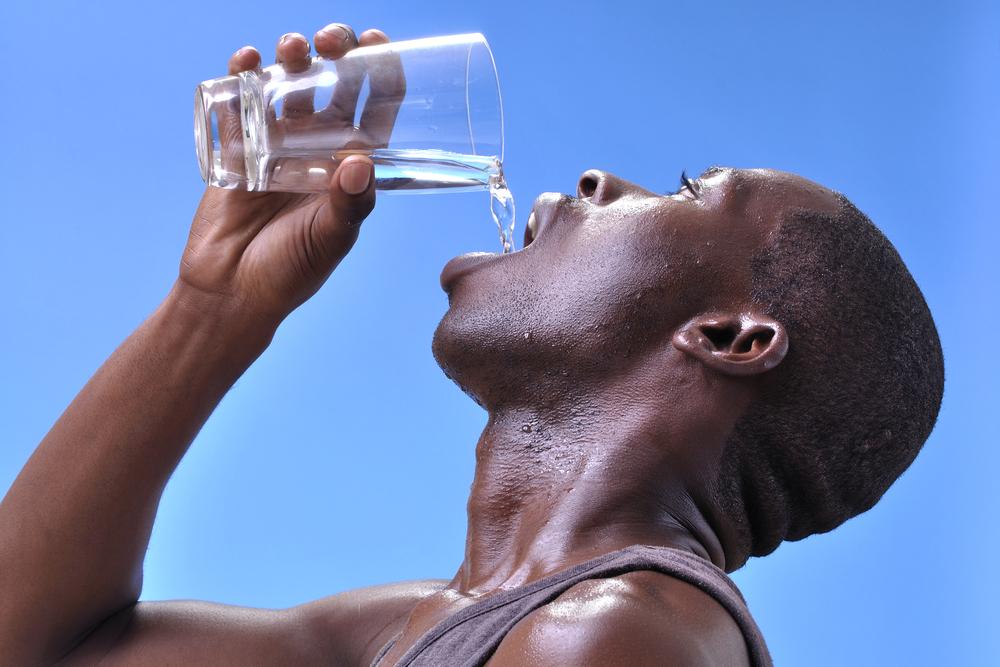Dehydration is more than just feeling thirsty; it’s a condition that can severely affect your overall well-being. Water is the essence of life, making up about 60 percent of our body. Yet, many of us unknowingly walk around in a state of mild dehydration, which can have serious consequences on our health. Whether you’re an athlete, a busy professional or someone who simply forgets to drink enough water, understanding the signs of dehydration is crucial.
This article explores five critical ways to determine if you’re dehydrated, helping you recognize the symptoms early and take action before it impacts your health. Dehydration is not just a physical state; it can affect your mental clarity, mood and even your long-term health. Let’s delve into the telltale signs that your body is craving water.
1. Persistent thirst
One of the most obvious indicators that you’re dehydrated is persistent thirst. While this may seem straightforward, many people overlook or ignore this crucial signal. Thirst is your body’s natural way of alerting you that it needs more fluids to maintain balance. If you constantly feel thirsty — even after drinking water — it could be a sign that your body is struggling to replenish what it has lost. Persistent thirst can lead to dry mouth, chapped lips and a feeling of having a dry, sticky mouth.
These symptoms not only cause discomfort but can also indicate a more severe level of dehydration. It’s important to listen to your body and hydrate regularly, especially if you’re exposed to hot weather or engaged in physical activities that cause excessive sweating.
2. Dark urine
The color of your urine is a reliable indicator of your hydration status. When you’re adequately hydrated, your urine should be pale yellow or straw-colored. However, if you notice that your urine is dark yellow, amber or even brown, it’s a clear sign that you’re dehydrated. This change in color occurs because, during dehydration, your kidneys work harder to retain water, leading to a higher concentration of waste products in your urine.
Dark urine is your body’s way of telling you that it needs more fluids to flush out toxins and maintain normal bodily functions. Ignoring this sign can lead to more serious complications, such as kidney stones or urinary tract infections, which can be painful and require medical attention.
3. Fatigue and dizziness
Feeling unusually tired or dizzy could be another indication that you’re dehydrated. Water plays a critical role in maintaining blood volume and circulation, and when you’re dehydrated, your blood pressure can drop, leading to fatigue and dizziness. This happens because your body prioritizes vital organs — such as the heart and brain — over other systems when there is a fluid shortage. As a result, you might feel sluggish, weak and unable to focus on tasks.
Dizziness — especially when standing up quickly — is a common symptom of dehydration, as it signals that your body is struggling to maintain proper blood flow. Chronic dehydration can lead to long-term issues, including decreased physical performance and cognitive impairment. Therefore, it’s vital to stay hydrated to keep your energy levels up and avoid unnecessary strain on your body.
4. Dry skin and lack of sweat
Your skin is the largest organ in your body, and it requires proper hydration to function effectively. When you’re dehydrated, your skin may appear dry, flaky or less elastic. A quick test to check for dehydration is to gently pinch the skin on the back of your hand; if it doesn’t snap back immediately, you might be dehydrated. Another sign is a lack of sweat, especially during physical activity or in hot weather.
Sweating is your body’s natural way of cooling down, and if you’re not sweating as you normally would, it could mean that your body doesn’t have enough fluids to regulate its temperature. Dry skin and decreased sweat production not only affect your appearance but can also lead to overheating, heat exhaustion or heat stroke, which are serious conditions that require immediate attention.
5. Headaches and mood changes
Dehydration can significantly impact your brain function, leading to headaches, irritability and mood swings. When your body is low on fluids, it can cause the brain to temporarily shrink from fluid loss, resulting in headaches. These headaches can range from mild to severe, often resembling migraines. Along with headaches, dehydration can make you feel anxious, confused or easily agitated.
These mood changes occur because dehydration affects your body’s ability to transport oxygen and nutrients to your brain, disrupting normal cognitive function. Moreover, dehydration can make you feel lethargic and less motivated, impacting your overall mood and mental well-being. Staying hydrated is essential not just for physical health but for maintaining emotional stability and mental clarity.
Common but preventable
Dehydration is a common but preventable condition that can have serious consequences if left unchecked. Recognizing the signs early is the key to avoiding the complications associated with it. Persistent thirst, dark urine, fatigue, dry skin and headaches are all critical indicators that your body needs more water. By staying vigilant and ensuring you drink enough fluids throughout the day, you can maintain your health and well-being. Remember, water is not just a beverage; it’s an essential part of your body’s daily functioning.
Don’t wait for these symptoms to become severe before you take action. Make hydration a priority, and your body will thank you with better health, higher energy levels and improved overall well-being.
Maintaining proper hydration is crucial for everyone, regardless of age or activity level. Whether you’re an athlete, a busy professional or someone enjoying retirement, staying hydrated should be a daily habit. So, the next time you reach for a glass of water, know that you’re not just quenching your thirst; you’re supporting every function in your body and safeguarding your long-term health.
This story was created using AI technology.
















